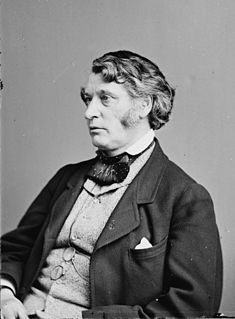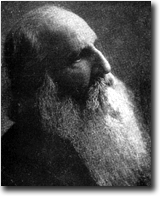A Quote by Edmund Burke
This sort of people are so taken up with their theories about the rights of man that they have totally forgotten his nature.
Related Quotes
My basic approach is to recognize that mainstream legal theories of contract have been muddied by unlibertarian and positivistic conceptions of law and rights. Questions about what rights are "alienable" or not, loose talk about how promises should be "binding," etc., highlight the need for clarity in this area. In my view, to sort these issues out one needs a very clear and consistent understanding of the nature of property rights and ownership.
We hear in these days a great deal respecting rights--the rights of private judgment, the rights of labor, the rights of property, and the rights of man. Rights are grand things, divine things in this world of God's; but the way in which we expound these rights, alas! seems to me to be the very incarnation of selfishness. I can see nothing very noble in a man who is forever going about calling for his own rights. Alas! alas! for the man who feels nothing more grand in this wondrous, divine world than his own rights.
That was exciting to be able to comment on civil rights. I mean, the civil rights movement that young people don't know about today, but Martin Luther King was considered by the establishment press in the early years of the sit-in movement as a dangerous man, and he was the equivalent at that time as Malcolm X. And he was told to stop his demonstrations; they were against the law and all of that. Now that he's sainted and sanctified we've forgotten.
When Donald Trump talks about the rigged, corrupt system, remember, he's standing up for the forgotten man and the forgotten woman. This is not about him. This is about the people. This is about folks who are white-knuckled at the end of each month trying to pay the bills. This is about the people who feel like their pressing their nose against the glass of the rigged system and can't get in, they're just watching everybody else benefit.
Individualism regards man - every man - as an independent, sovereign entity who possesses an inalienable right to his own life, a right derived from his nature as a rational being. Individualism holds that a civilized society, or any form of association, cooperation or peaceful co-existence among men, can be achieved only on the basis of the recognition of individual rights - and that a group, as such, has no rights other than the individual rights of its members.
The highest greatness, surviving time and stone, is that which proceeds from the soul of man. Monarchs and cabinets, generals and admirals, with the pomp of court and the circumstance of war, in the lapse of time disappear from sight; but the pioneers of truth, though poor and lowly, especially those whose example elevates human nature, and teaches the rights of man, so that "a government of the people, by the people, for the people, may not perish from the earth;" such a harbinger can never be forgotten, and their renown spreads co-extensive with the cause they served so well.
Human beings have rights, because they are moral beings: the rights of all men grow out of their moral nature; and as all men havethe same moral nature, they have essentially the same rights. These rights may be wrested from the slave, but they cannot be alienated: his title to himself is as perfect now, as is that of Lyman Beecher: it is stamped on his moral being, and is, like it, imperishable.
The Forgotten Man is delving away in patient industry, supporting his family, paying his taxes, casting his vote, supporting the church and the school, reading his newspaper, and cheering for the politician of his admiration, but he is the only one for whom there is no provision in the great scramble and the big divide. Such is the Forgotten Man. He works, he votes, generally he prays — but he always pays — yes, above all, he pays.
Man isn't a noble savage, he's an ignoble savage. He is irrational, brutal, weak, silly, unable to be objective about anything where his own interests are involved-that about sums it up. I'm interested in the brutal and violent nature of man because it's a true picture of him. And any attempt to create social institutions on a false view of the nature of man is probably doomed to failure.











































